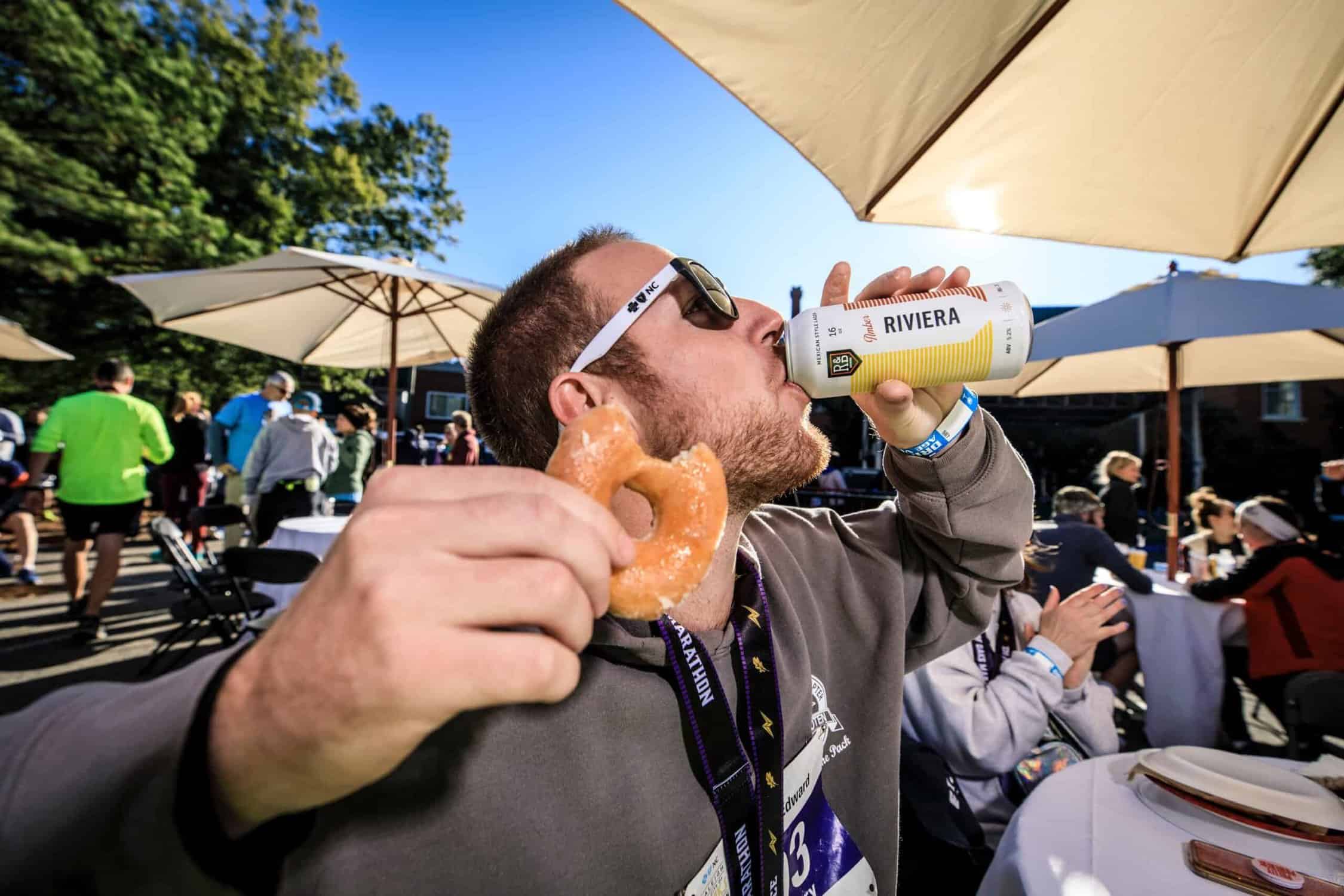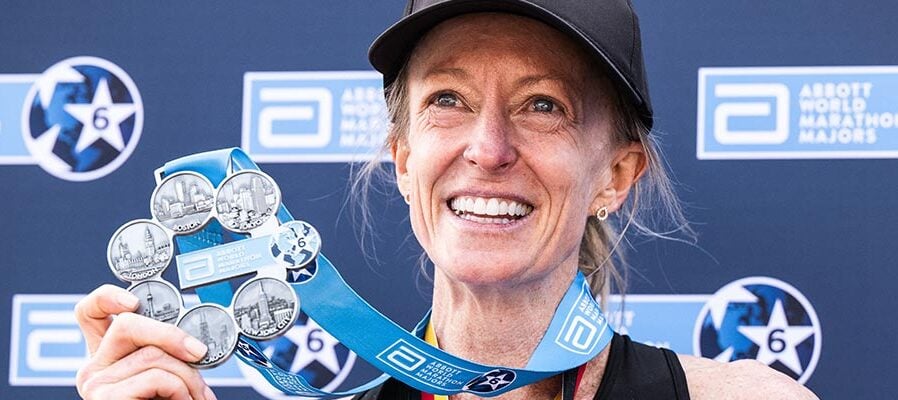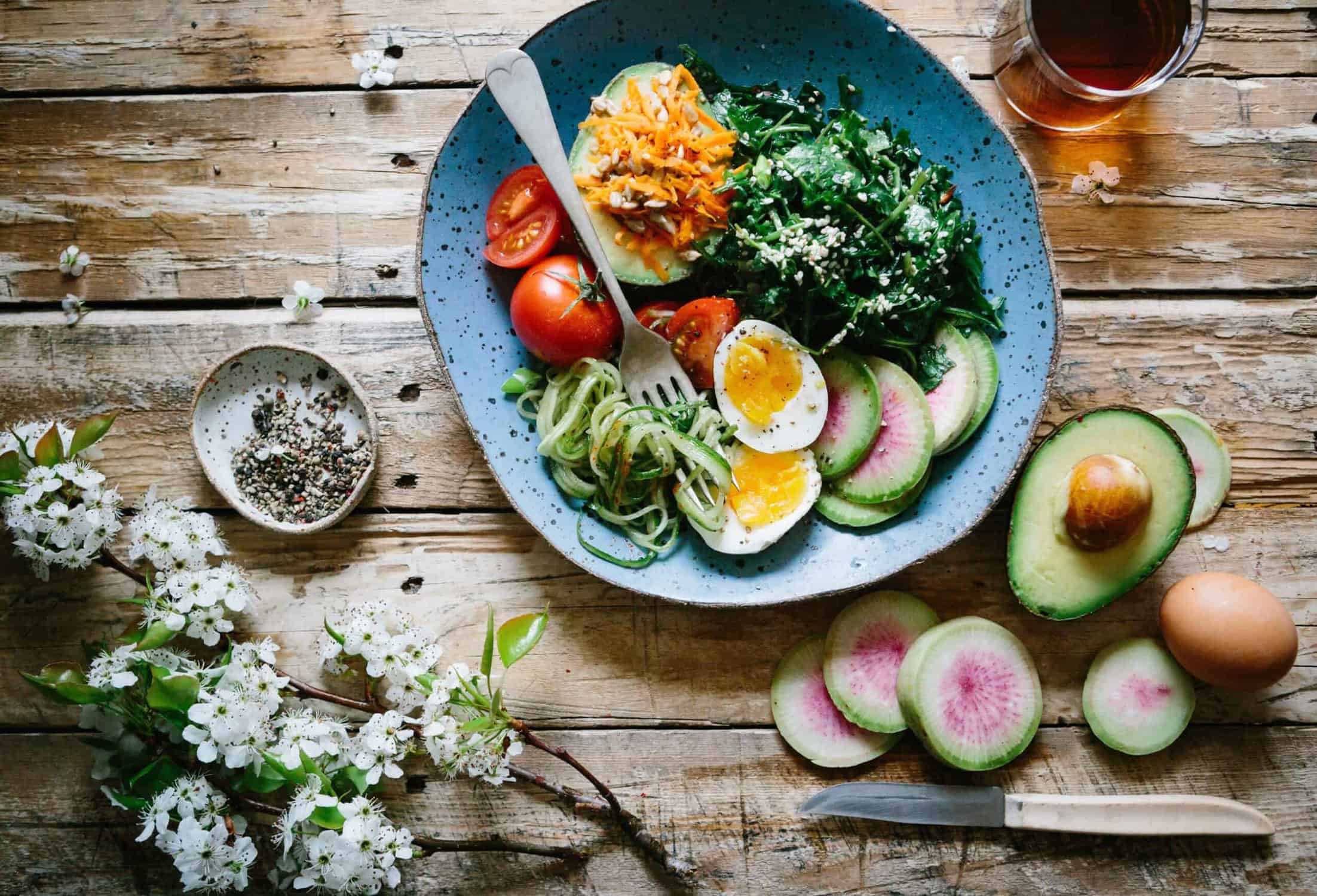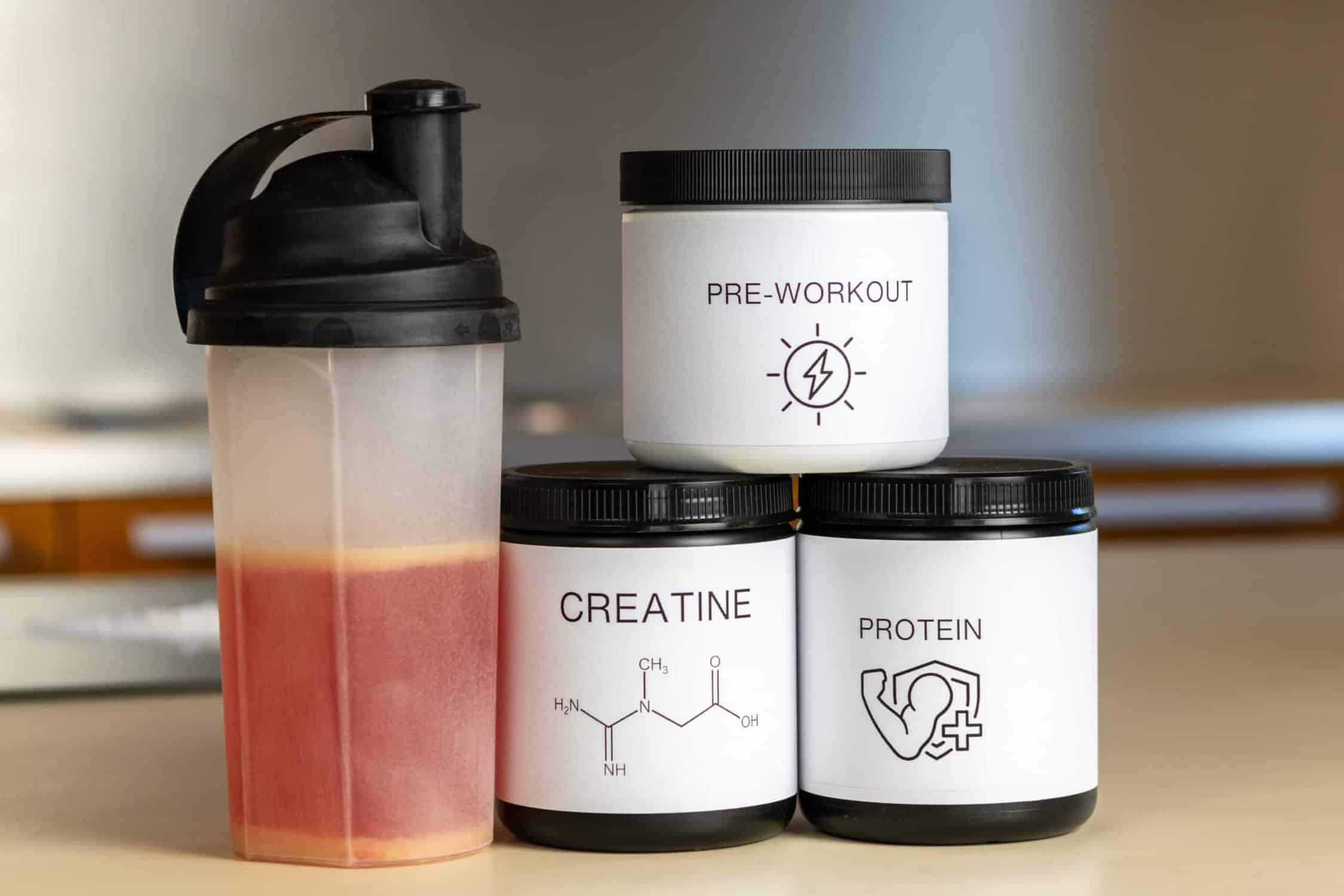When we’re training and preparing for a half marathon, we spend a lot of time thinking about pre-race nutrition. But it’s also super important to consider what to eat after a half marathon.
This choice isn’t going to make or break your race time. But it will influence how quickly you recover from running 13.1 miles and how tired you feel in the aftermath.
As a sports nutritionist, I can tell you: The food you consume immediately after the half marathon plays a crucial role in reducing muscle soreness, recovery time, and repairing any injuries during the first 72 hours after your half marathon. Here’s the smartest way to go about it.
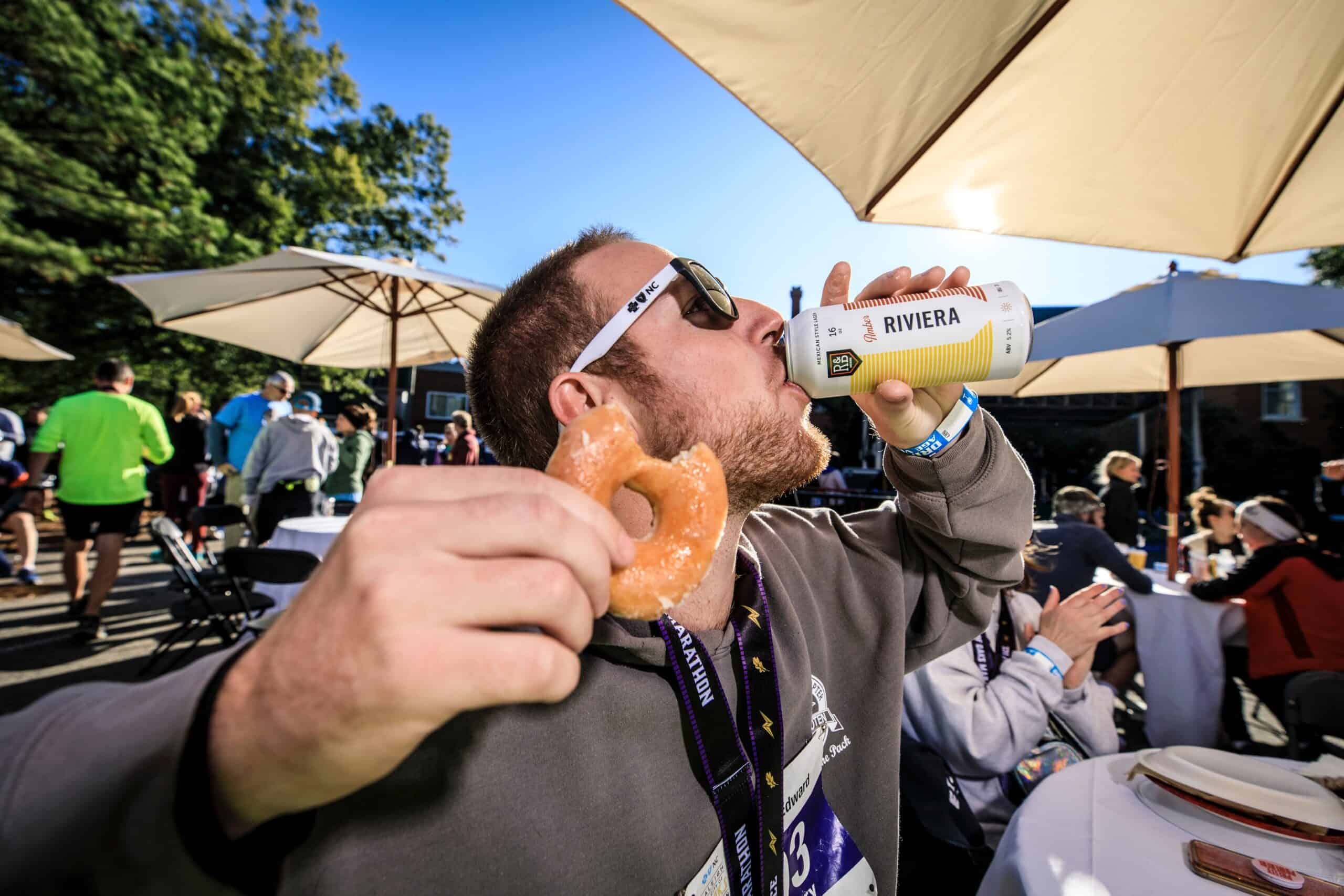
What to Eat Right After a Half Marathon
The macro and micro nutrients we eat influences our body’s ability to repair muscle fibers, to replenish energy stores, and to execute a thousand tiny system operations. So, what you eat matters to your body’s recovery.
You already know what to eat before a race as well as your mid-run fueling strategy. But your main goal after your race is to:
- Replenish glycogen (read: energy) stores
- Rebalance fluid and electrolyte levels
- Take in essential nutrients for muscle repair
1. Reach for Complex Carbohydrates
Carbohydrates provide glycogen stores in your muscles and liver, which are the front lines of defense for aiding in recovery. Simply, carbohydrates are used for energy. After running a half marathon, your glycogen stores will be depleted which causes DOMS (delayed onset muscle soreness).
To avoid this:
- Eat a carbohydrate snack as soon as possible after a race.
- Continue eating mixed meals and snacks high in carbohydrates within 4 hours. This helps to ensure the muscles continue to get glucose for glycogen replenishment.
Good sources of carbohydrates include:
- Whole grains (e.g., brown rice, quinoa, whole wheat bread)
- Sweet potatoes
- Fruit, dried or fresh
- Bananas
- Bagels
- Pasta
- Sports drinks
- Granola bars
- Sub sandwiches
- Smoothies made with fruit
My recommendation as a sports dietician: Eat 1-1.2 grams of carbohydrates per kg of body weight per hour for the first 4 hours after a half-marathon.
For a 150-pound person, that means 68 to 82 grams of carbohydrate. This might look like one to two bananas and a Gatorade (63 to 90g carbs).

2. Drink Fluids With Electrolytes
No matter how much Gatorade you smash into your mouth during your race, you will finish your half marathon in a fluid-depleted state.
Right after completing a half marathon, start replenishing lost fluids and electrolytes. Consuming a sodium-containing beverage or water, as well as sodium-rich foods.
You want to drink 16 to 24 ounces of fluid for every pound of body weight lost. This will require weighing yourself before the half marathon. Most of us won’t remember to do this, but most people lose about 3 to 5 pounds during a half marathon. That means you’ll need to drink about 48 to 120 oz of fluids to replenish.
Try drinking:
- Commercial recovery drinks like Gatorade
- A homemade smoothie
- Chocolate milk
- Real foods (such as a banana and granola bar) alongside water.
Incorporating fruits and vegetables antioxidants and vitamins like Vitamin C and Vitamin A will also help accelerate the recovery process and support the immune system.
Watermelon, blueberries, cantaloupe, oranges, coconut water, avocados, veggies, and leafy greens are all rich in antioxidants.
Salted nuts can also provide sodium, protein, antioxidants, and anti-inflammatory fats.
3. Replenish Protein
Your muscles need amino acids to repair after a half marathon.
To maximize protein absorption, eat 20 to 25 grams of protein every 3 hours post-race for the next 12 hours. Research has shown that this is the ideal strategy for promoting efficient muscle recovery.
What does 20-25 grams of protein look like?
- 3.5 to 4 ounces of chicken breast, fish, or steak (about the size of a deck of cards)
- 6 to 7 ounces of tofu
- 1 cup of Greek yogurt
- 3 to 4 large eggs
- 1 cup cottage cheese
- 1-2 scoops protein powder
Eat one of these foods every 3 hours in the 12 hours following your half marathon to meet your body’s protein needs.
It might be tempting to indulge in fun foods (my personal favorite is pizza) immediately after a race. But it’s better to focus on nutrient-dense foods first to support recovery.
4. Don’t Eat Junk Right Away
Give your body time to rehydrate and refuel with nourishing foods before treating yourself to post-race indulgences.
5. Go Ahead, Crack That Post-Race Beer
There is nothing like cracking a cold one at the finish line to celebrate your achievement.
Beer contains water, carbs, sodium, and protein. All these can contribute to half-marathon recovery.
Beer can be enjoyed as part of your post-run recovery in combination with food and water and in moderation.
Beer is a diuretic, so a good rule of thumb is to match your beer serving with a serving of water to counteract its dehydrating effects.
Try sticking to light beer (below 5% ABV) or non-alcoholic beer if you’re going to enjoy a post-race beer.
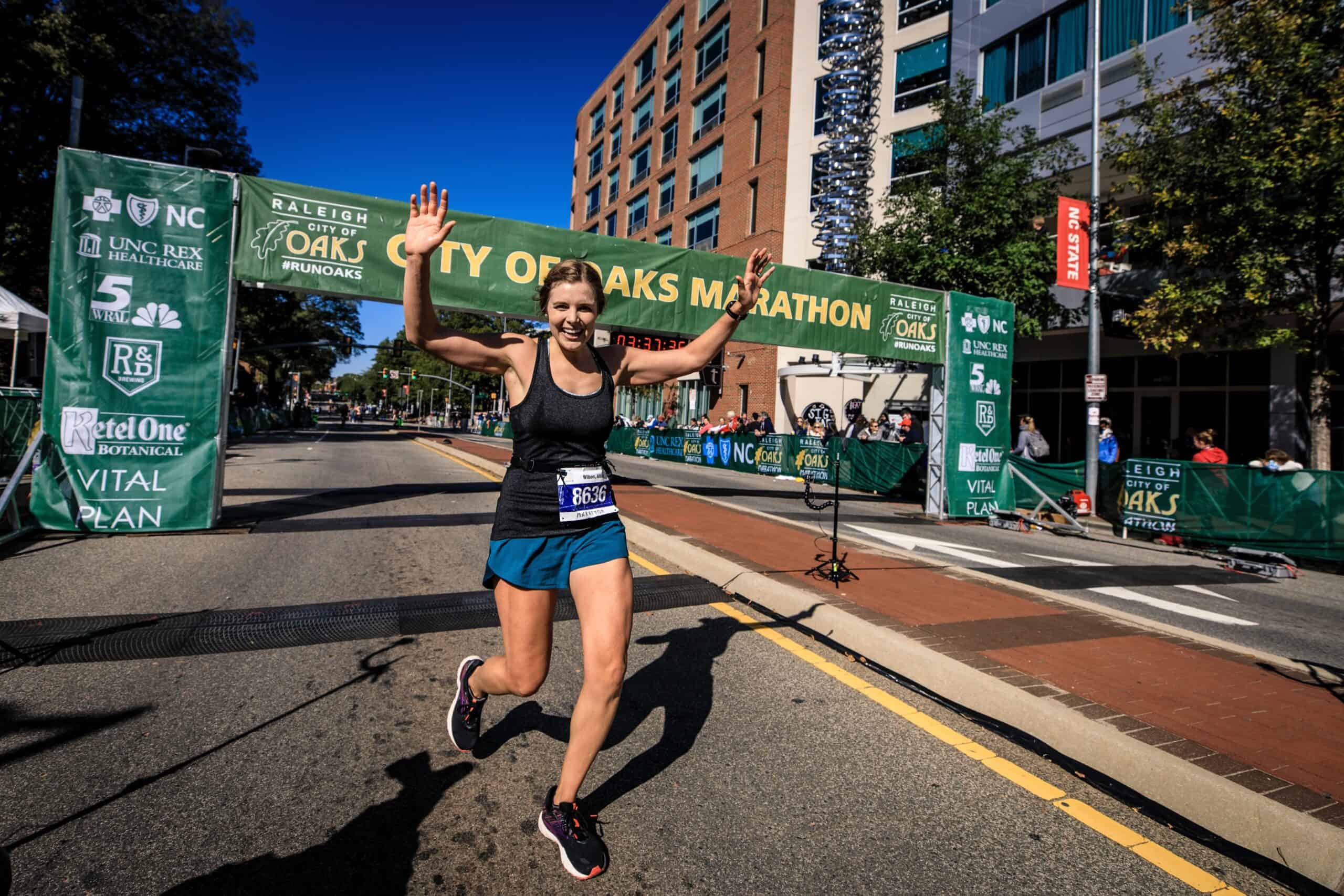
What to Eat the Night After a Half Marathon
6 Hours After
Now that you have fluids and electrolytes, carbs, and protein in your system, we’re ready to shift to maintenance. Your main goals in the six hours after a race are to replenish muscle glycogen stores, rebalance fluid and electrolyte levels, and eat essential nutrients for muscle repair.
- Carbs: Eat 1-1.2 grams of carbohydrates per kg of body weight per hour for the first 4 hours after a half-marathon
- Fluids: Drink 16-24 ounces of fluid for every pound of body weight lost
- Protein: Eat 20-25 grams of protein every 3 hours
- Electrolytes: Snack on salty foods, have a sports drink, eat antioxidant rich fruits
- Indulgences: Hold off for now if you can
12-24 Hours After
During this period, continue prioritizing nutrient-rich foods to support your body’s recovery process.
- Carbs: Focus on whole foods and complex carbs. Have a balanced meal combining carbs with protein (ideas below).
- Fluids: Continue to drink fluids. Drink 16-24 ounces of fluid for every pound of body weight lost.
- Protein: Continue to eat 20-25 grams of protein every 3 hours for the 12-hours post-race. Have a balanced meal combining carbs with protein (ideas below).
- Indulgences: Treat yourself to a post-race treat or beer now and not any earlier than 12 hours if you can.
48 Hours After
In the following days after the race, your focus should still be on recovery and providing your body with essential nutrients. Follow general healthy eating patterns and healthy recipes.
The Best Foods to Eat After a Half Marathon
- Bananas: High in carbohydrates, potassium, and Vitamin C.
- Sweet Potatoes: Vegetables with highest complex carbohydrates per serving as well as a healthy amount of fiber.
- Greek Yogurt: Easy to consume with fruit or nuts mixed in which is a great source of protein; calcium supports bone growth and density; magnesium help with muscle and nerve function
- Salmon: As much protein as any lean meats as well as omega-3 fatty acids which is celebrated for its anti-inflammation effects on the body
- Quinoa: An ancient grain that not only provides complex carbohydrates like any rice would, but it’s naturally high in protein and fiber
- Spinach: Nutrient dense with iron (for energy and internal body processes), calcium, and vitamins
- Tart cherry juice: Antioxidants and anti-inflammatory properties can help reduce muscle soreness
- Eggs: High in protein and all nine amino acids
- Oranges: Contain dense amount of Vitamin C and help hydrate you
Meals to Eat After a Half Marathon
The most effective approach to refueling post-workout is to combine carbs with protein in a 3:1 carbs to protein ratio.
This balanced combination aids in muscle repair, recovery, and glycogen resynthesis. All these post-run meals contain a source of complex carbohydrate and 20 grams of protein.
- Grilled Chicken Salad: Grilled chicken breast (3-4 ounces) over a bed of quinoa, mixed greens, cherry tomatoes, and cucumbers. Dress with a vinaigrette dressing.
- Whole Wheat Wrap with Turkey and Hummus: A whole wheat wrap filled with sliced turkey breast (3-4 ounces), hummus, spinach, and shredded carrots.
- Tofu Stir-Fry: Tofu cubes (6-7 ounces) stir-fried with broccoli, bell peppers, snap peas, and a teriyaki sauce. Serve over brown rice or noodles.
- Greek Yogurt Parfait: Greek yogurt (5.3-6 ounces) layered with mixed berries, a drizzle of honey, and a sprinkle of granola for added crunch.
- Veggie Omelet: Two-egg omelet filled with sautéed spinach, tomatoes, mushrooms, and feta cheese.
FAQs
Your main goals immediately after a race are to replenish glycogen stores, rebalance fluid and electrolyte levels, and eat essential nutrients for muscle damage repair.
Bananas as they are rich in carbohydrates, potassium, and Vitamin C. Sweet Potatoes for their complex carbohydrates and fiber. Greek yogurt for their protein and calcium. Salmon for protein, omega-3 fatty acids and anti-inflammatory properties. Quinoa for protein, fiber, and complex carbohydrates.
First and foremost – celebrate! If possible though, give your body time to rehydrate and refuel with nourishing foods before treating yourself to post-race indulgences.
Your goal should be to eat 20 to 25 grams of protein and 1-1.2 grams of carbohydrates per kg of body weight in your big meal after a marathon.
The best post-marathon foods are rich in carbohydrate, protein, antioxidants, fluids, and electrolytes.
The day before your race, eat 8 to 12 grams of carbs per kilogram of weight. Include carbohydrate-rich foods like bagels, pasta, rice, potatoes, and bread in your meals.
–
Everything featured on Half Marathon Guide is independently selected and curated. We may receive a small commission on purchases made from some of our links.

